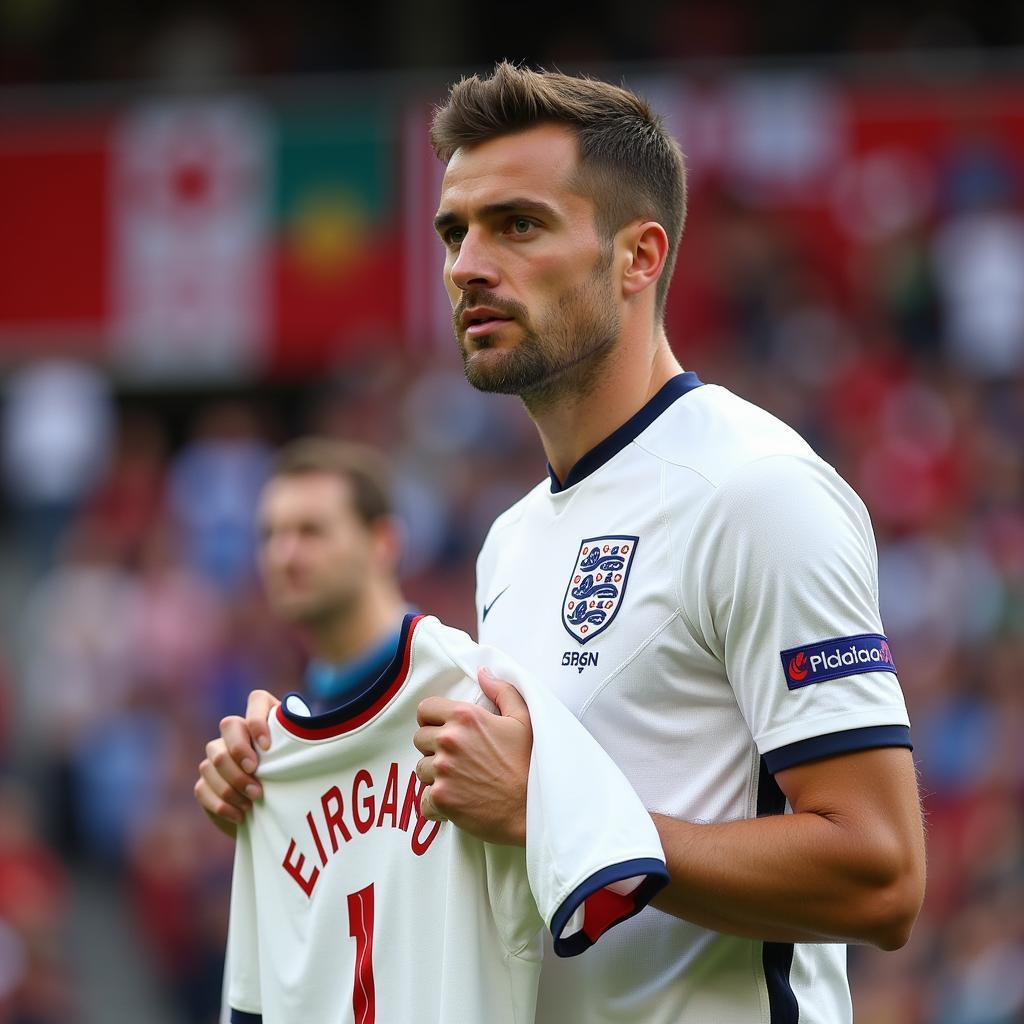Players Who Declined to Play for England
December 12, 2024The decision to represent a national team is a complex one, filled with personal, cultural, and professional considerations. This article explores the intriguing stories of players who, for various reasons, declined to play for England, even when presented with the opportunity. We delve into their motivations, the impact of their choices, and the broader context of dual nationality and international football.
The Allure and the Rejection: Choosing Country Over Country
Declining an invitation to play for the Three Lions is a decision that often raises eyebrows. After all, representing England, a nation with a rich footballing history and a passionate fanbase, is a dream for many. But what drives some players to choose a different path?  Players declining England call up
Players declining England call up
Family Ties and Cultural Identity
For many players with dual nationality, the pull of their heritage is strong. Representing the country of their parents or grandparents can be a powerful way to connect with their roots and honor their family history. This often outweighs the prestige and opportunities that playing for England might offer.
A Chance to Shine: Seeking Greater Opportunities
Sometimes, the decision is purely strategic. A player might see a better chance of securing regular playing time and achieving international success with a smaller nation. The competition for places within the England squad is fierce, and opting for a different national team can provide a clearer path to a starting role and major tournaments.
Notable Cases: Players Who Said “No” to England
Several high-profile players have chosen to represent other countries despite being eligible for England. These cases offer valuable insights into the diverse factors influencing such decisions.
-
Wilfried Zaha: Despite representing England in friendlies, Zaha ultimately chose to play for the Ivory Coast, the country of his birth. This decision allowed him to compete in major tournaments like the Africa Cup of Nations.
-
Jack Grealish: Although born in England, Grealish qualified to play for the Republic of Ireland through his grandparents. He represented Ireland at youth level before ultimately deciding to commit to England’s senior team. This illustrates the complex and often evolving nature of these choices.
What Prompts These Decisions? Examining the Motivations
The decision to decline an England call-up isn’t taken lightly. Often, a combination of factors contribute to this choice.
- Competition: The sheer number of talented players vying for spots in the England squad can make it difficult for some to break through.
- Playing Style: A player’s style might be better suited to a particular national team’s tactical approach.
- Personal Connection: The emotional connection to a country, rooted in family history or personal experiences, can be a significant factor.
The Future of National Team Allegiance: A Shifting Landscape
The landscape of international football is constantly evolving. Increased globalization and migration have led to a greater number of players with dual nationality, making these decisions even more prevalent. The criteria for national team eligibility, while generally clear, can also be subject to interpretation and change.
Conclusion
The stories of players who declined to play for England offer a fascinating glimpse into the multifaceted world of international football. These decisions, often driven by a complex interplay of personal, cultural, and professional considerations, highlight the importance of individual choice and the evolving nature of national identity in the global game. Ultimately, these players’ choices remind us that representing a country is more than just wearing a shirt; it’s about representing a part of who you are.
FAQ
- Can a player switch national teams after playing competitively for one?
- What are the FIFA regulations regarding national team eligibility?
- How do national team coaches approach players with dual nationality?
- Are there any financial implications for choosing one national team over another?
- How does the media portray players who decline to play for their country of birth?
- What are the long-term implications of these decisions for players’ careers?
- How do fans react when a player chooses a different national team?
For further assistance, please contact us: Phone: 0396443476, Email: [email protected] Or visit us at: 23 Tháng 3, Đắk Nia, Gia Nghĩa, Đắk Nông, Việt Nam. We have a 24/7 customer service team.